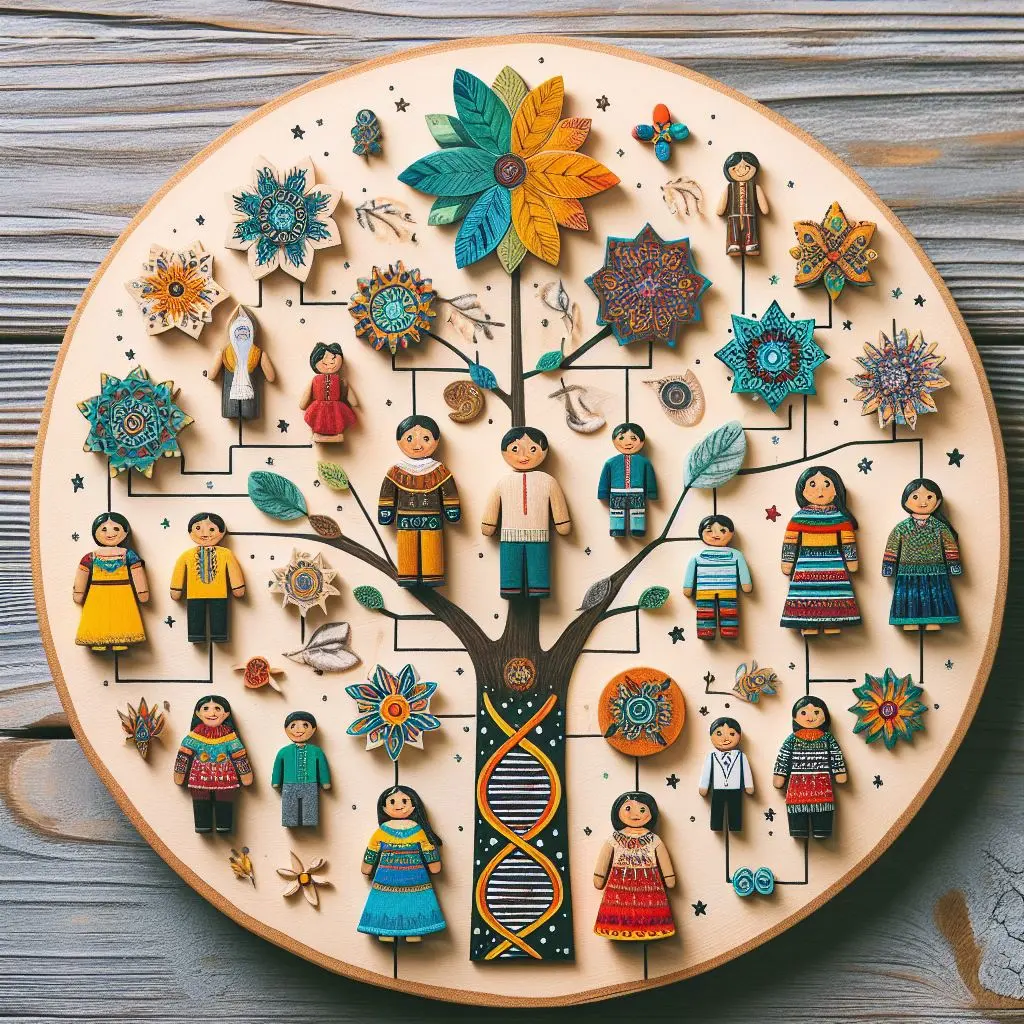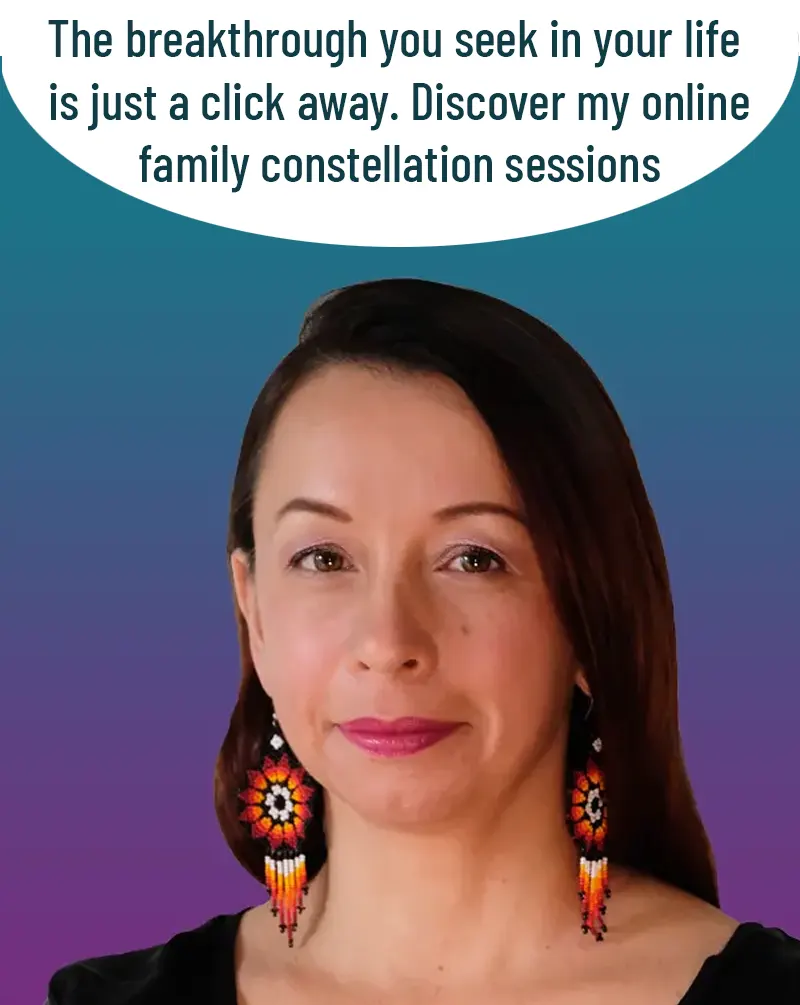Family Constellations. Analysis of My Other Self: Illness as a Message in the Sevgi Family System.
Published July 18, 2024

Table of Contents:
In the My Other Self series, Sevgi's story illustrates how illness can become a form of deep communication within the family system. From a family constellation perspective, we understand that illness is not always just a physical ailment, but a reflection of unresolved emotional patterns. In Sevgi's case, her cancer is a message of something deeper that needs to be healed.
Illness as Protection and Message
For Sevgi, illness is not a punishment, but a reminder that something in her family system needs to be looked at. In family constellations, illness often arises as a sign that something has been hidden or unrecognized within the family, and its function can be to protect us from continuing to ignore these patterns. It is an opportunity to stop, look at the system and heal what has been left unresolved.
Sevgi's illness appears because, at the age of 5, she witnessed the murder of her father, which created a deep emotional trauma. This trauma was frozen inside her because, as a child, she did not have the emotional tools necessary to process the grief. In family constellations, we recognize that these unresolved traumas tend to manifest in adulthood, often through illness.
The Role of Childhood Trauma
When a child experiences a traumatic experience, such as the violent death of a parent, that unprocessed pain is stored in the body and soul. In Sevgi's case, her trauma remained as a frozen part of her being, and this unresolved trauma is linked to her illness. Like many other cases we see in family constellations, when something so severe happens in childhood, the child cannot fully process the event, which creates a lasting impact.
It is in adulthood that this trauma surfaces most visibly, through emotional and physical blockages and, in some cases, illness. Sevgi's healing is not only about dealing with her cancer, but also about facing her childhood trauma and releasing the pain she has stored up.
The Two Parents: Biological and Caregiver
There are two important father figures in Sevgi's life: her biological father, who was murdered, and the person who cared for her after his death. In family constellations, it is crucial to recognize and give a place to both parents, as each plays an essential role in her development and in her family system. The biological father gave her life, but also carried a history of violence and tragedy. The caregiving parent, on the other hand, offered emotional and physical support, helping to stabilize her childhood after the trauma.
Sevgi's healing process requires her to honor both, recognizing that each gave her something valuable. Only when a balanced bond is established with both parents is it possible to release the emotional burdens that carry over from generation to generation.
The Place of the Killer and the Victim in the Family System
A profound aspect of family constellations is that both the victim and the perpetrator must have a place in the family system. This does not mean justifying the act of violence, but rather giving the pain a place so that it can be processed and healed. In Sevgi's story, her father's murderer is part of her system, and denying him that place only perpetuates the trauma. It is necessary to acknowledge what happened, to give space to the pain, and to allow love to flow in that context as well.
Sevgi must face this part of her story, making room for her murdered father and acknowledging the killer's presence in her family system, in order to release the pain she has been unconsciously carrying for so long.
The Role Reversal with her Mother: The Daughter as Symbolic Partner
After the death of her father, Sevgi took on a role that was not hers: she became the emotional support figure for her mother. In family constellations, this is known as the "role reversal," where the children take a place that belongs to the deceased husband or wife. In this case, Sevgi's mother, not having processed her own grief, relied on her daughter to fill the void left by her husband. This relationship creates a dynamic of codependency, where Sevgi has no room to grow as a daughter, but instead assumes a role of caregiver and protector of her mother.
These types of relationships often create blockages in other areas of a person's life, such as relationships. Sevgi, by assuming the role of her father, has no room for a partner in her adult life, as she is emotionally occupied with the dynamic between her and her mother.
Profession as a Reflection of the Family Tree
Another fascinating aspect of Sevgi's story is her profession: lawyer. This is no coincidence, as her profession is directly linked to justice, balance and healing the wounds of her family system. As a lawyer, Sevgi seeks justice on the outside, but in her personal life, the justice she needs is to balance her family's trauma, honoring both victims and perpetrators, and allowing love to flow again.
Healing the System to Heal the Disease
Sevgi's illness is a reflection of unresolved wounds in her family system. Through family constellations, it is possible to look at those traumas, honor the pain, and free the members of the system from emotional burdens they have carried for generations. Sevgi, by acknowledging her trauma, by giving a place to both parents and the murderer, and by letting go of her role as caregiver, has the opportunity to heal deeply, not only on a physical level, but also emotionally and spiritually.
Family constellations teach us that illness, trauma and family relationships are deeply intertwined. By healing our personal and family history, we open the door to a freer, more balanced and fulfilling life.
**In family constellations, each of us carries unresolved stories from our family system. If you want to learn more or heal your own story, schedule a family constellation session. I help you look at what your soul needs to see in order to heal. DM for more information or visit the link in my bio.



